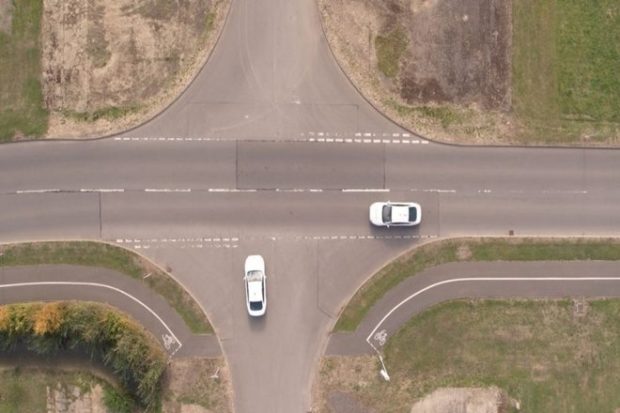
We all daily battle with congestion, traffic and often this chaos results in unnecessary stress in our lives. Imagine a life where you don’t have to stop at all, not even at a traffic red light or a signal. What if your car was smart enough to communicate with other cars and you just don’t have to deal with traffic at all. This future is not very far, carmakers across the world are working towards connected cars that could coordinate their movements in order to go through them at intersections or traffic signals without stopping. Ford is already working to make this dream a reality and has made quite a bit of progress on this end.
Also Read: Entering college? Now enroll at a good driving school as well
Ford is currently testing this technology in the United Kingdom and says that this will reduce the travel time and also reduce crashes at the intersection. In European countries, the average time spent by drivers at traffic signals accounts for two days per year and also 60% of crashes take place at intersections. Ford believes that with connected cars this could be a thing of the past and is currently experimenting with “Intersection Priority Management” (IPM) system in a town in England named Milton Keynes. This system uses car-to-car communication and technology is as simple as a Wi-Fi-like communication mode that allows cars to send and receive signals for communications.




Here, the technology shares and broadcast the location of the car along with the direction of travel and speed. The software embedded to the car’s sensor analysis the movement of the vehicles nearby and suggests to either increase or decrease the speed of each vehicle within the vicinity to negotiate the approaching intersection of a traffic signal without stopping. Currently, the cars that are being put on tests are not autonomous cars. It has human drivers to take control if things go wrong. However, Ford is hopeful to apply this system to its autonomous vehicles.
This new technology has the potential to eliminate the need for traffic lights and stop signs believes Ford Motor Company. Christian Ress, Supervisor, Driver Assist Technologies at Ford Research and Advanced Engineering says that traffic lights and intersections can be a real bugbear for many drivers. With Connected car technology, Ford envisages a world where cars are more aware of each other and the overall ecosystem, enabling smart cooperation on the roads and around traffic junctions.
IPM is another big technology innovation by Ford and its Project partners that aim to build autonomous vehicles to improve the overall driveability across the world. Ford will invest £20 million to take self-driving and connected car technologies from the test track to the streets. Ford also showcased Collaborative Parking technology that builds a crowd-sourced map of a car park’s available spaces – and Emergency Vehicle Warning, where drivers are advised of the location and distance of an approaching emergency vehicle.




















